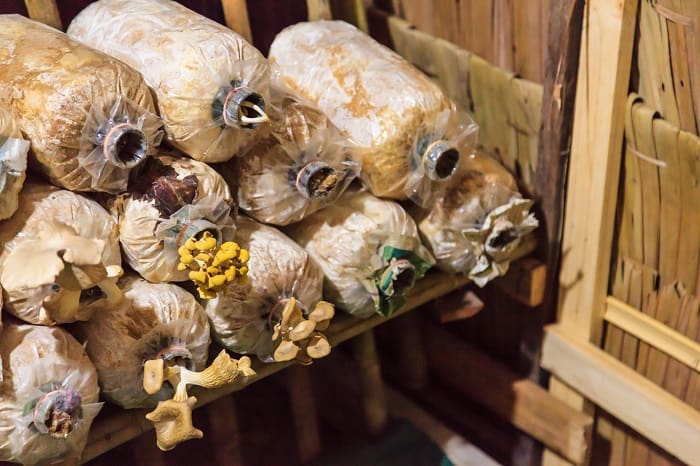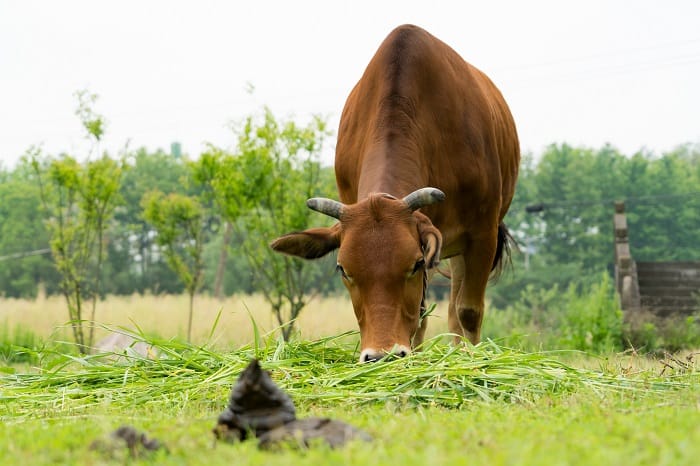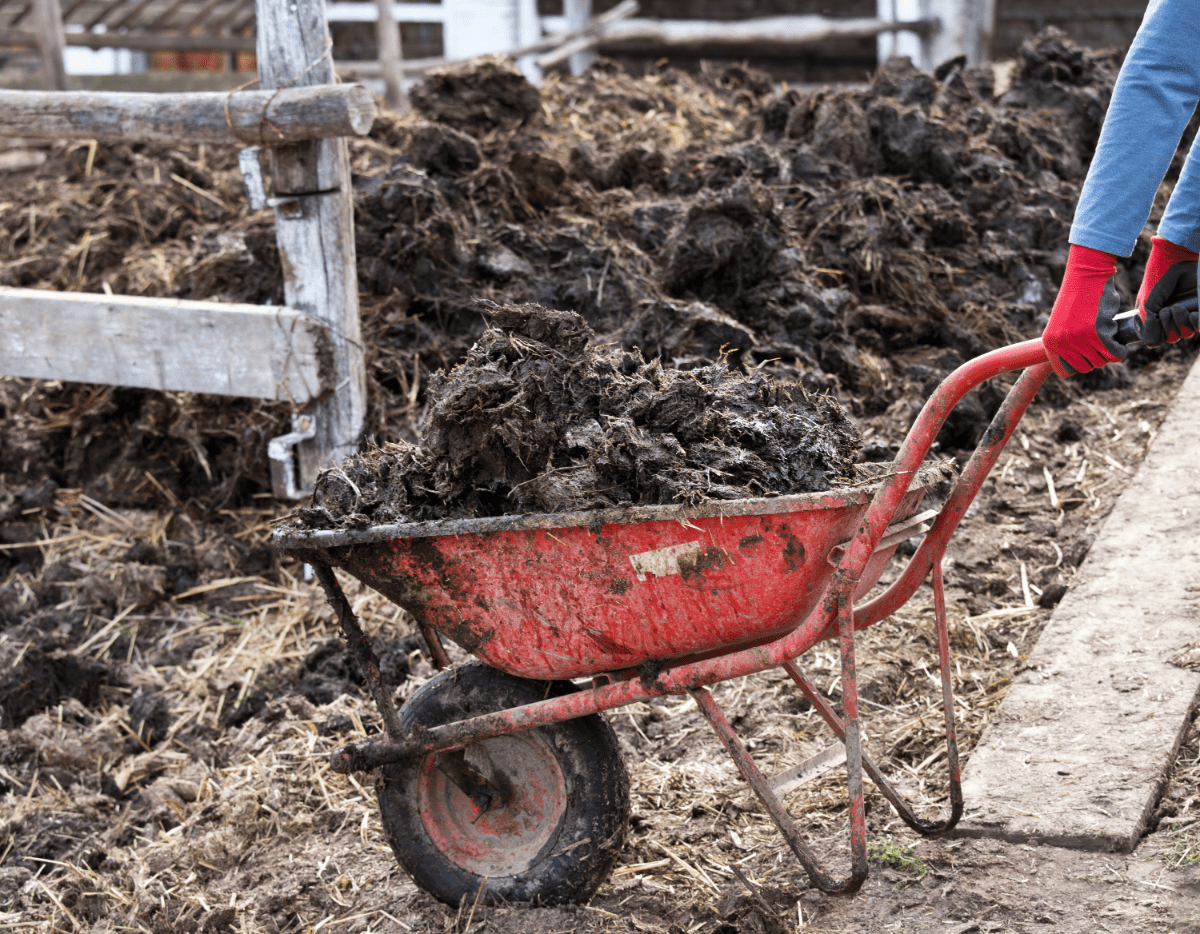Adding green to your abode makes it look much more invigorating than investing too much in unnecessary decorations that may make your house look superfluous. Growing healthy plants in your garden can only be made possible with healthy
What is Compost?
Compost refers to organic materials that have been decomposed to provide nutrients to the
Although compost equates to minimizing food waste, particular things are highly discouraged to be part of the process like animals and milk products. Animal products take time to decompose; hence, they may serve as a breeding site for microbes, which invites diseases.
Therefore, it’s better to settle for plant and fruit products – mushroom compost, for example.
Mushroom Compost
Mushroom compost makes a good conditioning product for your garden
You can buy mushroom spawn in the market or prepare it manually. A single bag of mushroom spawn is steam pasteurized to get rid of weeds that competes with your plants in absorbing nutrients from the
The entire duration for mushroom composting normally takes about three to four weeks, with the temperature closely monitored to complete the process. After it has been completed, the leftover compost is utilized as a
Read more about Will Mushroom Compost Burn Plants?
Advantages of Mushroom Compost
Mushroom compost is capable of providing nutrients to your plants at an affordable rate. In addition, it also allows your
Most garden plants, may it be fruits, vegetables, or flowers, are compatible with mushroom compost. To further appreciate its effects, mix it thoroughly with the

Disadvantages of Mushroom Compost
Although mushroom compost is an ideal organic matter to use, you should be aware of where and when to use it due to its high-salt level. Salt-sensitive plants like azaleas are not compatible with mushroom compost, while seedlings may also be affected by the high amount of salt.
Learn if Mushroom Compost Is Good for a Vegetable Garden
What is Manure?
Another form of fertilizer that can be used in producing healthy plants is animal manure (usually cow, chicken, or horse manure). This organic fertilizer is also capable of giving off nutrients like nitrogen, phosphorus, and potassium to the
The animal waste used in manure processing is a cost-effective process that doesn’t cause any pollution at all. Moreover, it’s also capable of killing weeds and pests that disrupt the growth of plants.
There are three different types of Manure: green manure, compost manure, and farmyard manure. All three come from different sources but primarily aim to provide nutrients to the
Cow Manure
As mentioned, cow manure serves as the most ideal dung for gardening. Cows eat mainly grass, so it’s not unusual to see grass and grain in their manure. Cow manure isn’t difficult to find, as there are several cows in the field that excretes from time to time.
Composting manure is highly beneficial to plants, as it serves as an excellent culture bed for seeds, due to its high nutrient content. Although it’s a good fertilizer, heavy manures, like those from cows, must be combined with light materials (hays, straws) or ash/lime.

Advantages of Cow Manure
Aside from providing a rich amount of nutrients from your crops and other forms of garden plants, it also increases the
Another advantage of using cow manure is that it improves ventilation for your plants. Composting cow manure will also promote the growth of good bacteria in the
Lastly, it’s also environmentally friendly, in a way that produces a small number of greenhouse gases.
Disadvantages of Cow Manure
Manure or waste may be beneficial for the
To eradicate these problems, composting in the right way cow manure will kill most of the pathogens. Follow the steps mentioned here to reduce the risk of foodborne pathogens in your vegetable gardens.
You can buy these mushroom and manure compost on Amazon:
- Espoma GM25 Organic 3-2-3 Chicken Manure- it is made in the United States and it is suitable for organic gardening.
- Michigan Peat Garden Magic Compost and Manure- a balanced blend of organic peat moss and composted animal manure, it is ideal for improving a wide range of planting soils.
- Mushroom Compost Organic Brands- this media contained wheat straw, fibrous peat, gypsum, dolomite, crushed feathers, cottonseed meal, peanut meal, and more.

Mushroom Compost vs Cow Manure?
Conclusively, both products are excellent sources of nutrients for your
Albeit, you can still opt for composting cow manure to completely enjoy its benefits for your plants. In the end, choosing based on availability and cost plays a major role on your part.
Read about Plants that Don’t Like Mushroom Compost
Does Garden Soil Have Manure?
Your garden
How Do You Make Mushroom Compost With Soil ?
You can make mushroom compost with
- 35 – 40%
soil - 35 – 40% straw
- 35 – 40% animal manure (preferably horse)
- Water
Instructions:
- Use a pitchfork or shovel to mix the straw and manure in a wheelbarrow or other large container.
- Add a layer of
soil , and mix it well. - Moisten the mixture but ensure it is not soggy.
- Spread the mixture out evenly in a flat layer on the ground.
- Keep the mixture moist as it begins to break down and decompose.
Note: The manure provides the fungi with the nutrients they need to grow. The
Over time, the compost will become a rich, dark brown material. This will make it the perfect environment for growing mushrooms.
What is The pH of Mushroom Compost?
The pH of mushroom compost varies. It is influenced by the ingredients used to make it and the stage of decomposition it is in. Generally, mushroom compost tends to have a slightly acidic pH. This can range from 6.0 to 7.0. Most mushrooms prefer this range.
What Vegetables Like Mushroom Compost?
Mushroom compost is rich in nutrients and organic matter. Many vegetables can benefit when growing in this. Some may even prefer it and yield better results! If you have mushroom compost, you can use it to grow:
- Tomatoes
- Peppers
- Eggplants
- Squash
- Cucumbers
- Beans
Mushroom compost makes a great addition to most food gardens. However, if you’re growing berries, it’s best to plant them elsewhere.
What Flowers Like Mushroom Compost?
Almost any type of flower can benefit from mushroom compost. Most types contain phosphate, potash, calcium, magnesium, and iron. Plants that enjoy these nutrients include roses, lilies, marigolds, zinnias, and sunflowers.
Plants that don’t like mushroom compost prefer less acidic
What Do Mushrooms in Soil Mean?
If you see mushrooms popping up, it means there’s an underlying fungal network present in your
Mushrooms are the fruiting bodies of mycelium. If your
What Edible Mushrooms Grow on Manure?
Eating the wrong mushroom can be fatal. If you see mushrooms growing in your garden, you need to be sure they’re edible before you take a bite. Many edible mushrooms grow on manure, so you’re in luck if you want to start producing your own. You can try growing shiitake, oyster, and enoki mushrooms on a mixture of straw and animal manure.
If you’re after more flavor and texture, you can grow morels or chanterelles. These grow in manure too. Mushrooms can grow in various environments and climates. You can use more than manure if you want to explore other growing substrates.
Conclusion
Having plants in your home provides excellent vibrancy in the surroundings than overly decorating your house with unnecessary objects. To produce healthy-looking plants, mixing your
Both mushroom compost vs cow manure has their own set of advantages and disadvantages. Therefore, it’s all up to you what to choose based on the availability and budget.
FAQ’s
Where to buy mushroom compost?
If you don’t have space for composting or if your mushroom compost is not fully done, buying is a great option. So where do you buy mushroom compost? You can buy mushroom compost from all local home and garden stores.
You can as well buy mushroom compost online.
Can you put fresh cow manure in your garden?
There are lots of benefits to applying cow manure in your garden. However, putting fresh cow manure in your garden is not advisable. Now some fresh manure can have some bad bacteria (e.g. E. coli) which can cause harm to humans when you consume the resulting plant. Bacteria that can be detrimental to your plants can be introduced by applying fresh cow manure.
Also, weed seeds can be introduced to your garden because the digestive tract of a cow cannot break down seeds. Therefore, fresh cow manure can contain weed seeds capable of invading your garden.
Raw cow manure is well comprised of a high amount of ammonium, nitrogen, and salts and these can burn your plants.
This is why we recommend you hot compost your fresh cow manure before applying them in your garden. This way, harmful bacteria, and seed weeds neutralize too much nitrogen, ammonium, and salt. Therefore, your compost manure pile will produce healthy and safe plants.
We suggest you compost your fresh cow manure for a minimum of 15 days at a regular temperature of 131 Fahrenheit. Also, turn your compost constantly so all the manure attains the right temperatures.
What is the best compost for vegetable gardens? Mushroom compost or cow manure
In regards to fertilizing your vegetable table, there are usually numerous options. The best out of these numerous options are compost and manure. Nevertheless, between mushroom compost and cow manure you might be wondering which is better.
Our recommendation for the best compost for vegetable gardens is mushroom compost. Both mushrooms and cow manure are great. But cow manure is usually not recommended for edible crops such as vegetables as there is the chance of disease transmission to humans e.g. E. coli.
However, if you must use cow manure, hot compost them well. Also, apply them to your
What is mushroom compost not good for?
Mushroom compost is not good for fruit crops that need an acidic medium. This is because most finished compost is neutral. It is also not suitable for lawn top-dresser only if the
Mushroom compost is as well not suitable to be used as potting mix components.
Can too much compost hurt plants?
Even though compost is a slow-releasing nutrient, too much compost can be detrimental to your
Take for example nitrogen and phosphorous. They are some of the components in compost. Nitrogen is assimilated fast and rain can easily wash them away. Also, nitrogen is easily converted to N2 and N2O gases that escape through the air.
However, phosphorous are assimilated gradually. It can’t be easily washed away by rain or converted. Therefore, excess phosphorous build up in the





